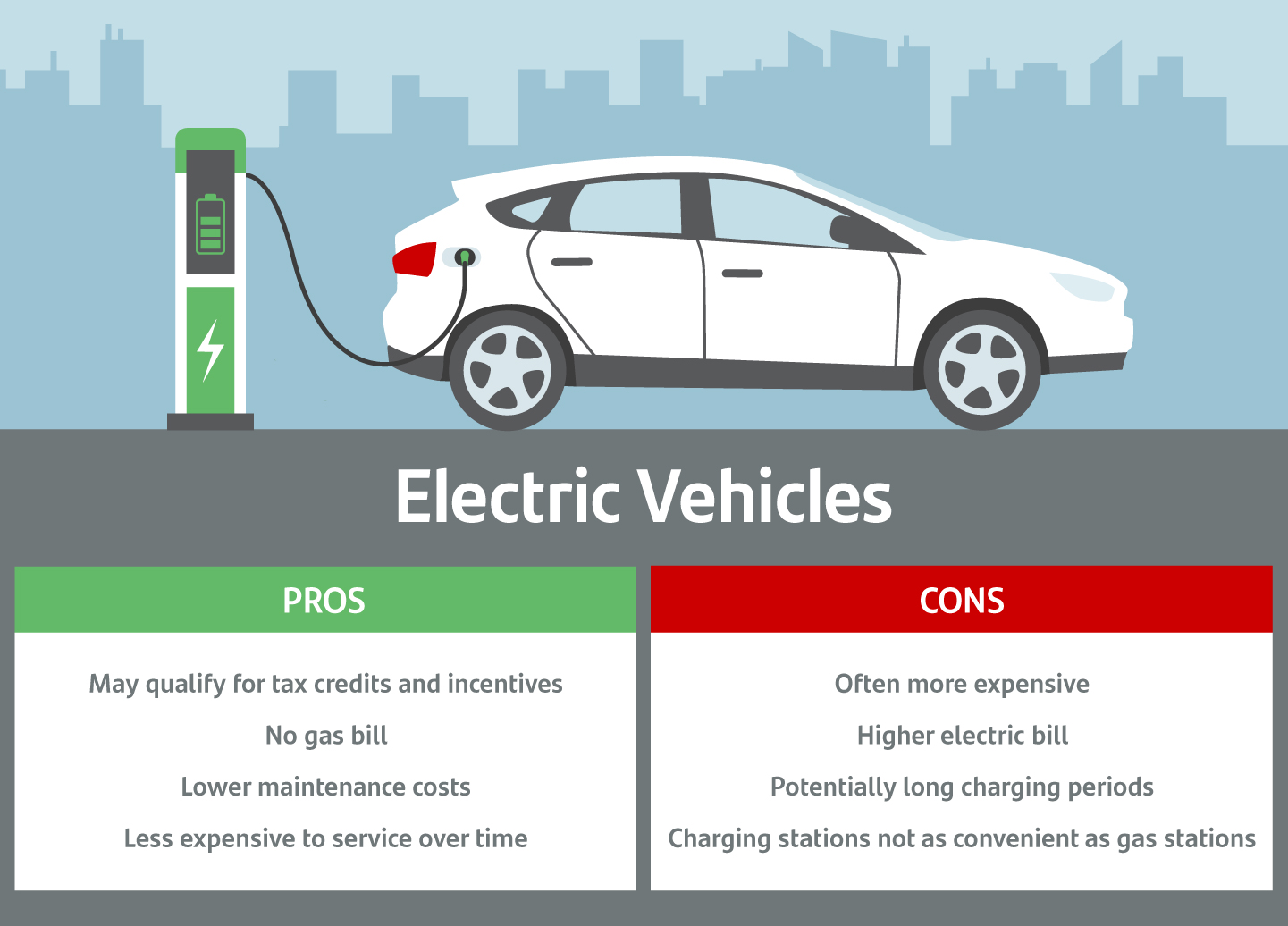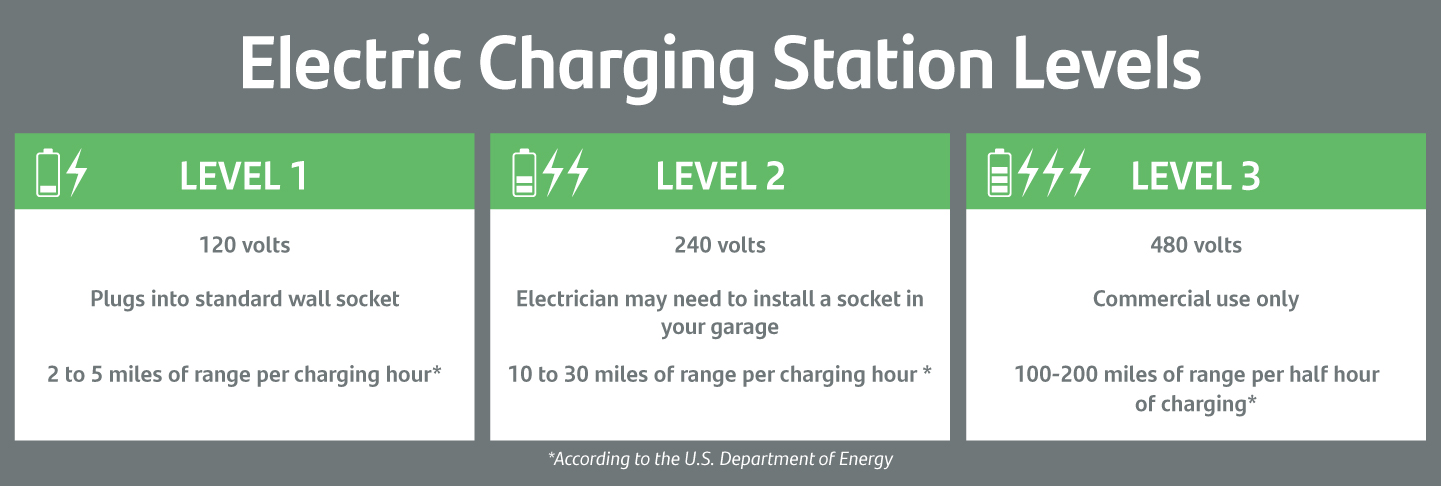Electric vehicles have been capturing the interest of people for years. And right now, with the current spike in gas prices – the idea of not being so dependent on fuel is even more tantalizing. So is now the time to buy an electric vehicle? Here is what you need to know.

Savings aren’t immediate
Whether you’re looking for a new or used car – gas or electric – you’re going to be paying more in 2022 than in years past. It’s not just the costs associated with purchasing a vehicle, but operating it as well. Experts say it’s important to break out a calculator to see if an electric vehicle will provide you with the savings your wallet needs.
“In terms of savings overall, I think the mistake that a lot of people make is they just think ‘yes electricity is less expensive than gas so I am going to start saving right off the bat.’ But you have to take into account what the vehicle costs over a traditional gas vehicle, and I think that is where you start to run into the issue of It taking a very long time to break even,” says Edmunds’ Senior Consumer Advice Editor Ronald Montoya. Furthermore, if you are buying a new car, you’ll have to make payments on the vehicle.
For example, a new electric 2022 Nissan LEAF costs approximately $27,400 and gets around 100 mpg/city. The 2022 Nissan Sentra is a comparable gas vehicle, which costs approximately $19,600 and gets around 30 mpg/city. Depending on your driving patterns, it could take quite some time before you break even. The U.S. Department of Energy offers a helpful side-by-side calculator where you can compare vehicle models and potential savings over time.
In addition to cost, AAA Automotive Technical Engineer Matthew Lum says your lifestyle needs to be factored in when choosing between an electric versus gas car.
“Consider your typical driving behavior and compare how many miles you usually drive in a day to the range estimates provided by the EPA. Keep in mind that these driving range estimates may be significantly less than you might encounter depending on your driving environment,” says Lum. “It is recommended that you look for a vehicle with significantly more advertised range than you drive in a typical day to account for these differences.”
Electric vehicle tax credit drives prices down
While the initial sticker price for an electric vehicle is often higher than its gas counterpart, many new electric vehicles qualify for a federal tax credit up to $7,500. Additionally, there are state and local incentives that may be applicable.
It’s important to do your homework and research incentives before making your purchase to ensure you know exactly what you’ll qualify for and how you’ll be compensated.
“Although it’s often positioned as a discount on the car, it doesn’t really work that way. It’s a credit on your income taxes,” notes Montoya. “If you have a refund then you’ll get the full amount, but if you do have to pay it’s going to be discounted from there. Depending on your tax situation, you may not get the full money back in your pocket.”
If you opt to lease an electric vehicle, some companies will use the tax credit to reduce the monthly payment.
Electric car charging costs
With an electric car you won’t be stopping at the gas station, but that doesn’t mean you won’t be spending money – whether at home or at a charging to station – to power your vehicle.
To get an estimate of how much it will cost to charge an electric vehicle at home, look no further than your current electric bill to see how much you pay for kilowatt-hours (kWh).
As of December 2021, the national average price of electricity was 13.75 cents per kWh and some experts say an electric vehicle can go four miles per kWh. If you drive 1,200 miles per month you will need roughly 300 kWh to charge your car, which would cost you approximately $41.25 a month.
Charging station locations
Another thing to be mindful of when considering an electric vehicle is what the charging infrastructure is like in your area. There inevitably will be times when charging at home isn’t an option. Whether you’re on a road trip or simply forgot to plug in and charge, you’ll need to be aware of where there are public charging stations. Public charging stations are operated by third parties, so pricing varies.
In addition to making sure you know where charging stations are located, you must allocate time for the charging to take place. “When you go to the charge stations sometimes during peak hours, you may have to wait awhile, it’s not like when someone is filling up gas and five minutes later you get out of there,” says Montoya. “You might have to sit in your car, 20 to 30 minutes, until a space is available for you.”
There are three levels of charging stations: Level 1, Level 2 and Level 3. Depending on your driving habits and potential charging needs, you may need to consider installing a charging station at your home, which may not be feasible if you live in a condo or apartment complex.

Lower maintenance and service expenses
Electric vehicles can save you money on areas besides at the pump. “Maintenance costs may be significantly less for an electric vehicle since there is no oil or belts to change and brakes are used less frequently due to regenerative braking,” says Lum. Basically, you just need to stay on top of rotating your tires and ensuring your windshield wiper fluid is full.
On average, a gas operated vehicle costs $0.101 per mile to maintain compared to $0.061 per mile for an electric vehicle, according to data published in 2021 by the U.S. Office of Energy Efficiency and Renewable Energy.
Initially electric vehicles can be most costly than gas vehicles to repair. After three months of use, an electric vehicle’s service costs are 132 percent higher than gasoline powered cars, according to predictive analytics and data company WePredict. However, after three years, the average service costs for electric vehicles are 31 percent less than gasoline powered cars. The lower repair costs are attributed to electric vehicles simply having fewer mechanical parts in the first place.
Consider a hybrid vehicle
Like any major financial decision, it’s important to carefully weigh the pros and cons of buying an electric vehicle. If you aren’t ready to go fully electric and fuel consumption is your main concern, a hybrid or plug-in hybrid may fit the bill. Hybrid cars use a combination of a battery-powered electric motor and a gas-powered internal combustion engine. Plug-in hybrids operate on electric power until the battery runs out and then the vehicle switches to an internal combustion engine. Both vehicle types have a better fuel economy than a traditional gas vehicle.
Regardless of the type of vehicle you are in the market for, your decision shouldn’t be based off emotion.
“Don’t make any impulse decisions just because gas prices are high right now,” advises Montoya. “Take the time to do your research and do the math to compare the vehicle you are driving versus what you want to get into will be a better deal for you in the long run because cars are very expensive right now. It may not be the silver bullet you think it is.”


